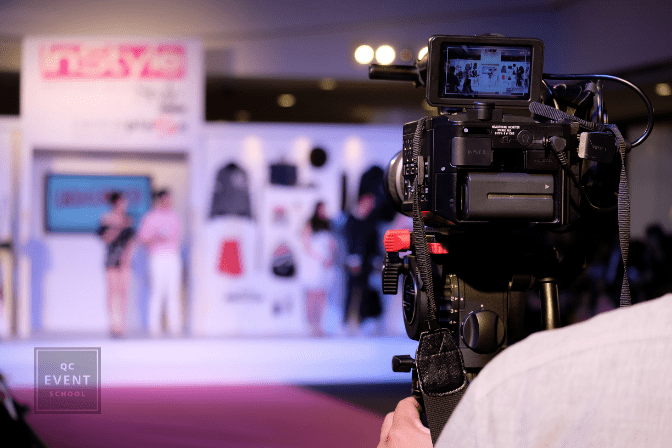
General Tips, Your Event Career
Get Sponsorships for Festivals and Live Events with These 4 Tips!
Once social distancing rules are safely lifted, there are going to be tons of businesses, corporations, and brands who will be eager to promote themselves and start gaining back business. One popular way to do this is by throwing a festival, or some other type of live event.
If you’re a corporate event planner, you’re probably known to specialize in this particular area of the industry, since you have extensive experience working with businesses. Additionally, you may have even built upon your existing skill-set by receiving expert training in festival and live event planning. Either way, thanks to your qualifications and expertise, YOU can be the one who helps bring your clients’ visions to life!
Typically, in order to throw this kind of live event, you’re going to need some sponsors. These are individuals or businesses that assist in supporting the event by providing products, services, or even monetary donations.
Does Your Event NEED a Sponsor?
Technically, no. But you’d be doing your client (and your reputation) a great disservice by not strongly considering it! In fact, sponsorships for large-scale, public events can often mean the difference between your event being a roaring success… or a PR nightmare.
Securing event sponsors can help make your life a LOT easier for several fundamental reasons:
1. It Improves the Budget
Festivals and live events can get pretty expensive. If your client doesn’t have a big enough budget to accommodate their goals, sponsorships can help ease the financial burden. And if your client does have the budget? Sponsorships can help free up some funds to be reallocated.
2. Networking Opportunities
We’re sure you already know just how important networking is in this industry, and why you should maximize it to your advantage. Getting sponsorships for your clients’ festivals and/or live events is yet another chance for you to broaden your professional connections! This can open the door to working with sponsors on their own events later on. They could also refer you to other businesses.
3. It Strengthens Your and your clients’ Reputation
By organizing a successful event that’s being sponsored by reputable brands within the industry, you’re assuring attendees that your client is trustworthy. They’re a business that guests should root for and believe in!
Furthermore, your event can potentially gain more exposure and sales numbers, thanks to trusted companies promoting it on their own websites and/or social media channels. The more sponsors attached to an event, the greater the brand awareness for your client will be.
Lastly, but just as importantly: by having secured such esteemed sponsors, it reflects very positively on you as a professional planner!
How to Get Sponsorships
There are countless ways for corporate event planners, festival planners, and live event planners to acquire event sponsorships. Here are 4 tips to get your started!
1. Develop a Game Plan with Sponsors in Mind
Do your research before you begin shaping the event itself! Ask yourself the following questions:
- What is the goal of this event?
- What message is my client trying to send?
- What principles, values, and beliefs does my client’s business promote?
- How can we translate these things into the event itself?
Ideally, you want to secure sponsors who share similar goals, beliefs, and values. These are the brands who will most likely believe in this event (and your client), and want to be affiliated with it. As such, if you don’t know the answers to the above questions, how can you properly know which sponsorships would best align with the event?
Pro Tip: Want to take it one step further? Plan the event with potential brands already in mind! This way, when you pitch the event to prospective sponsors, you’re demonstrating respect, consideration, and an understanding of who they are and what they do. Even if they ultimately choose not to participate, it’s likely to leave a very positive impression.
2. Gather All of the Relevant Data
Before you can pitch anything to sponsors, you’re going to need to put together all of the stats and information first. That way, when they inevitably ask for it, you’re already prepared and have it on-hand!
Some of the details you’ll need to consider as part of your preparation include:
1 – Identify what’s in it for them.
This is a partnership, so sponsors are going to want something out of the experience, too! Lay out all of the benefits their brand will receive by sponsoring your event, such as:
- Where they’ll be able to market themselves at the venue
- If/how their brand will be marketed via your client’s social media, website, etc.
- A rough game plan for how you and your client intend to help them meet their business goals at this event, etc.
2 – List all of your marketing inventory/assets.
This essentially means, anywhere in the event that your client’s company can afford to give exposure for the sponsor, such as showcasing their logo, etc.
3 – Calculate the Return of Investment (ROI).
How many attendees are expected to attend the event? Realistically, how many will receive brochures, access to digital event apps, swag, or any other marketing item that will give them exposure to your sponsorship’s brand?
Your goal here is to prove to your desired brand why sponsoring your event is a worthwhile investment. Importantly, you need to demonstrate forethought; that you’ve already considered factors A, B, and C, and have a plan in place for how you’ll return their investment in some beneficial way.
This step may require a bit of work, but the more thorough you can be, the better your chances are that your desired sponsor will be on board!
4 – Bundle different sponsorship packages.
Realistically, not every sponsor is going to want to invest the same amount into your event. So, it’s worth it to provide them with options. This way, they can choose how involved they want to be, in exchange for a certain amount of logo placement, marketing, and exposure from your event.
3. Write Your Pitch
Unless you already happen to know someone personally who works for the desired sponsor, you’ll often need to start at ground zero. The most common starting point in initiating contact with a sponsor is to provide them with a proposal for your festival or live event.
Don’t spam potential sponsors with a novel. Highlight the most important details of the event in one or two pages, tops. This should include:
- The number of people projected to attend
- The type of guests who will be in attendance (be specific with demographics!)
- The purpose of the event
- The types of sponsorships opportunities available
- A brief overview of your client and their business
- The marketing opportunities at the event
Since you’ll have already done thorough research into each brand you’re approaching, don’t hesitate to tailor each proposal a bit. For instance, if they’ve sponsored other events in the past, investigate what it was about those events that may have interested them.
These could be reasons why they could be interested in your event, too!
4. Negotiate the Terms
Once you’ve pitched your idea, discussed it at length with the person in charge of buying sponsorships, and they’ve agreed to sponsor your event, it’ll then be time to iron out the finer details. Start by putting together a written contract.
Much like with your other event planning contracts, this is to ensure that all parties are legally accountable (and protected) throughout the course of the project.
In terms of what to put into this contract, critical factors are:
- Which sponsorship package they’d like to purchase
- Terms of payment
- Specific marketing strategies
- Logo specifications
- Attendee benefits from the sponsoring company
- Deliverables, such as a statement of work, project scope statement, event timeline, etc.
- Cancellation clauses, etc.
Above all else, be confident! Believe in your client, believe in your event, and most importantly, believe in YOURSELF! When you’re willing to stand behind your proposal, potential sponsors will see how strongly you feel about it. The more you believe in the event, the more likely they will, too.
Do you have other tips for corporate event planners to find sponsorships for festivals and live events? Share your advice in the comments below!





